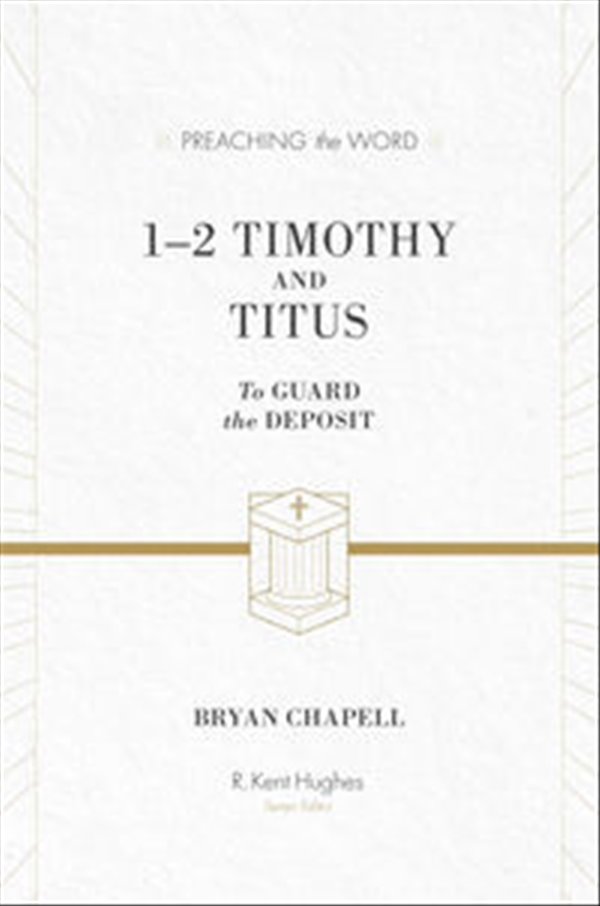What is Godliness? Paul's First Letter to Timothy
Share

It is clear that when the Apostle Paul focused on the practical life of the church, the godliness of the people was of intense concern. Of the fifteen occurrences of godliness in the New Testament, thirteen are in the brief span of the Pastoral Letters (1 and 2 Timothy and Titus), with a whopping nine in 1 Timothy alone. Since the Pastorals are the last of the old apostle’s letters, the matter of godliness is naturally charged with final urgency.
For Paul godliness is no static, stained-glass word. It is active—kinetic obedience that springs from a reverent awe of God. It is the Isaiah-like action that has a man, awestruck by God, rise from his face saying, “Here am I! Send me” (Isaiah 6:8). Awe—then action! Godliness is not piety as we generally think of it—upturned eyes and folded hands. Godliness cannot be cloistered. The godly among us are those people whose reverent worship of God flows into obedience throughout the week. Only God-struck doers of the Word can rightly be termed godly.
Furthermore, true godliness is rooted in the mystery of Christ. The last verse of 1 Timothy 3 sings about this:
Great indeed, we confess, is the mystery of godliness:
He was manifested in the flesh,
vindicated by the Spirit,
seen by angels,
proclaimed among the nations,
believed on in the world,
taken up in glory. (1 Timothy 3:16)
Jesus is the essence and wellspring of godliness. He lived in godliness, and now as ascended Lord he gives us godliness. Godliness is not external but is the inner power to live a godly life (cf. 2 Timothy 3:5; 2 Peter 1:3). The mystery of Christ makes godliness possible. Jesus strikes us with awe and then enables active obedience.
That is why Paul delivers a scathing attack on those who were promoting asceticism as the path to godliness through abstinence from marriage and certain foods. Outraged, Paul calls these ideas “teachings of demons” (1 Timothy 4:1) and assails the teachers as “liars whose consciences are seared” (1 Timothy 4:2). What blasphemy it is to teach that things that God has declared good must be rejected in order to become godly. What a slam on the work of the exalted Christ!
Confronted with the force of such a fearsome denunciation of asceticism, we might conclude that we must steer clear of all bodily disciplines that claim to promote godliness. Not so. In the following paragraphs (1 Timothy 4:6-10) Paul lays out the correct approach to godliness—which, ironically, he describes as coming through diet and discipline.
Diet for Godliness (vv. 6, 7a)
Paul first addresses the matter of a good spiritual diet: “If you put these things before the brothers, you will be a good servant of Christ Jesus, being trained in the words of the faith and of the good doctrine that you have followed. Have nothing to do with irreverent, silly myths. Rather train yourself for godliness” (1 Timothy 4:6-7).
Reject bad doctrine. Essential to a health-giving spiritual diet is rejection of junk food, here described as “irreverent, silly myths.” The trash that was coming from the false teachers was “irreverent” in that it was radically opposite to what is sacred. In calling it “silly myths,” Paul issued a sarcastic insult, seen frequently in Greek philosophical polemics, meaning “limitless credulity”—they would believe anything. What a concoction it was! The primitive history of the Old Testament was overlaid with ridiculous legends, its genealogies were given absurd symbolism, and then it was sugarcoated with demon-inspired asceticism that promised spiritual superiority through sexual and dietary abstinence. Junk teaching! Reject it, says Paul.
Dine on good teaching. Positively, Paul encourages Timothy to “put these things before the brothers.” In doing so, he tells Timothy, “you will be a good servant of Christ Jesus, being trained in [literally, “nourishing yourself in”] the words of the faith and of the good doctrine that you have followed” (1 Timothy 4:6).
Timothy is to be continually feeding himself with the content of the gospel and apostolic teaching. Significantly, this nourishment in the Word was essential to Timothy’s being “a good servant.” The word “servant” here could also be translated “minister.” A good diet makes a good minister. The most effective ministers have been those who persevered as students of the Word. Paul is repeatedly adamant about this to Timothy. “Do your best to present yourself to God as one approved, a worker who has no need to be ashamed, rightly handling the word of truth” (2 Timothy 2:15). “Preach the word; be ready in season and out of season; reprove, rebuke, and exhort, with complete patience and teaching” (2 Timothy 4:2).

Teaching on important matters for the local church, Hughes and Chapell offer a timely word to the many Christians who are concerned about their role and responsibility to communicate the truth of the gospel in this diverse and pluralistic society. The Pastoral Letters remind us that, like Timothy, we are to guard what has been entrusted to our care, to fight the good fight, and to keep preaching the Word.